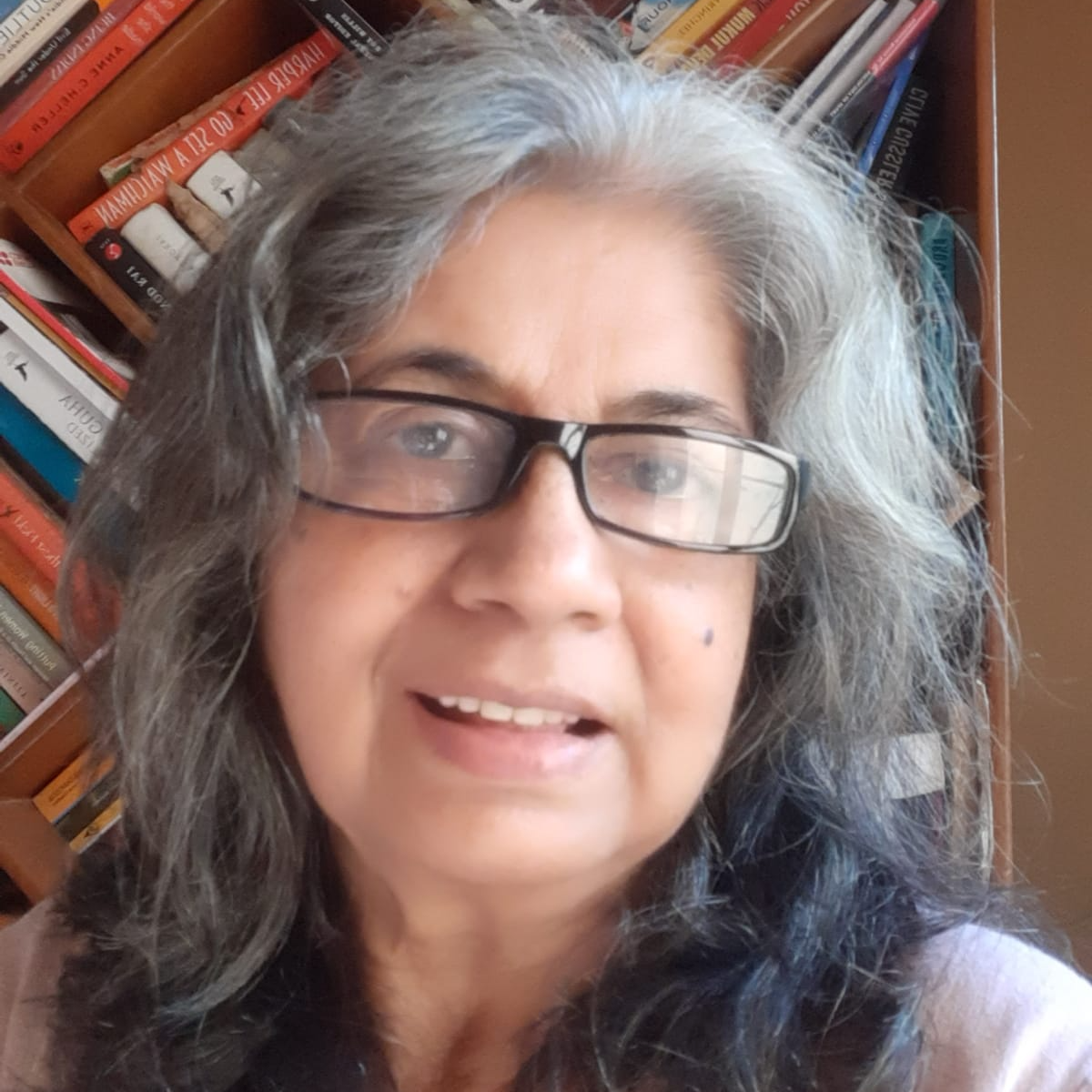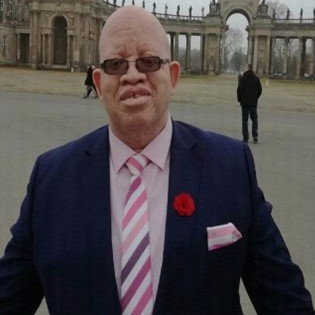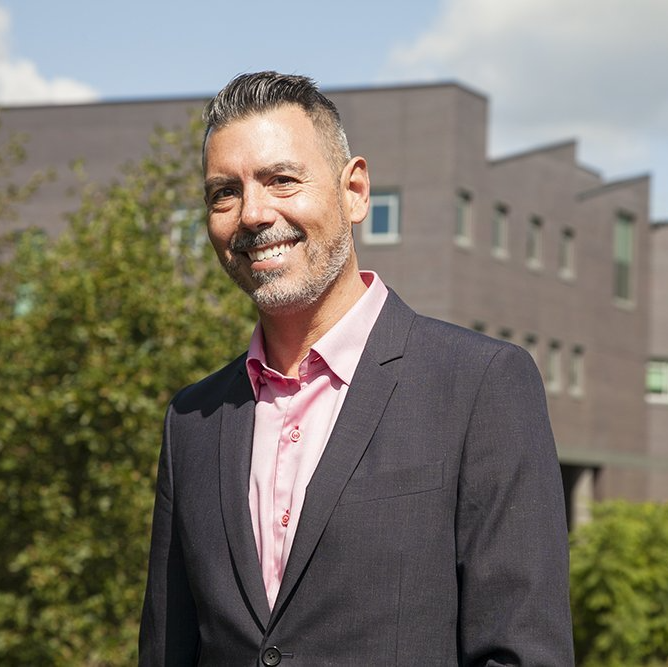Public Participation
1:00 - 2:45 PM EDT
Topic: Community Empowerment for Equitable Urban Growth
Many cities are struggling to acknowledge the importance of providing opportunities for all voices to be heard in decision-making, especially those from marginalized communities. For Cities to become more just, inclusive, and equitable, they must have structures, policies, institutions and process in place to not only listen to communities but to empower them. Communities that can take ownership of their situation leads to better economic and social outcomes for both the community and the city.
This panel discussion will provide practical and innovative approaches that are empowering communities in the decision-making process in their local contexts.
Speakers
Moderator of the Session
Ambika Chawla
- Programme Management Officer, UN-Habitat (Secretary)
Climate change policy researcher and writer. My area of specialization is climate change and urban areas. In specific, I look at how urbanization and climate change challenges are interlinked.
Climate change has direct effects on the physical infrastructure, industries, and services of a city. More importantly, climate change can jeopardize the livelihoods and physical and social health of urban communities. I am particularly interested in strategies and approaches to build urban resilience to climate change.
In addition, I possess knowledge of green growth principles and approaches. My research aims to link key green growth principles and approaches to solve pressing socio-economic and environmental problems in cities. I possess broad knowledge of the key urbanization challenges in Vietnam.
In addition to my expertise on cities and climate change, I have written on a myriad of topics related to climate change. My policy reports, as lead author or co-author, have been published by the Panos Institute (UK), the World Wildlife Fund, the One Earth Future Foundation, the Global Green Growth Institute, and UN-Habitat.
I am the project coordinator for the book "State of the World 2009: Into a Warming World" published by the Worldwatch Institute. The book is an important reference guide on climate change and has been published in 25 languages around the world.
I have been invited to present my policy reports at the UN Climate Conferences in Copenhagen (2009) and the Resilient Cities Congress in Bonn, Germany (2010). I recently led a session on Public Private Partnerships for Building Resilience to Climate Change at the World Habitat Summit on Towns, organized by UN-Habitat and the Urban Economy Forum.
My educational background is in environmental law, with a specialization in climate change law and policy.
As a journalist, I have been published by Ensia, Yes! magazine, Canadian Global Affairs Institute, Green Biz, Daily Climate, Global Diaspora News, Environmental Health News, among other media.
I am the founder of Urban Climate Innovations, a woman-owned think tank which works to design transformative solutions to address our most pressing urbanization and climate challenges. You can learn more about Urban Climate Innovations here: www.urbanclimateinnovations.org
Tadashi Matsumoto
- Head of Sustainable Urban Development Unit, OECD
Tadashi Matsumoto leads OECD’s work on sustainable urban development and manages the global relations at the Cities, Urban Policies and Sustainable Development Division. He provides strategic leadership and oversees the research and analysis on topics related to the zero-carbon transition in cities, a territorial approach to SDGs, urban green growth, energy efficiency in buildings, urban resilience and national urban policies.
Martha (Marty) Chen
- Lecturer in Public Policy, Harvard Kennedy School & Co-Founder, Emeritus International Coordinator and Senior Advisor, Women in Informal Employement
Martha (Marty) Chen is a Lecturer in Public Policy at the Harvard Kennedy School and Co-Founder, Emeritus International Coordinator and Senior Advisor of the global network Women in Informal Employment: Globalizing and Organizing (www.wiego.org). An experienced development practitioner and scholar, her areas of specialization are employment, gender and poverty with a focus on the working poor in the informal economy. Before joining Harvard in 1987, she had two decades of resident work experience in Bangladesh and in India. Dr. Chen co-founded and, for twenty years, led the WIEGO network which is well known worldwide for its work to improve the status of the working poor in the informal economy through stronger organizations, improved statistics and research and a more favorable policy environment. Dr. Chen received a PhD in South Asia Regional Studies from the University of Pennsylvania. She was awarded a high civilian award, the Padma Shri, by the Government of India in April 2011; and a Friends of Bangladesh Liberation War award by the Government of Bangladesh in December 2012.
Garry Fehr
- Associate Vice-President, Research, Engagement, and Graduate Studies, University of the Fraser Valley, Abbotsford, Canada
Dr. Garry Fehr completed his PhD in Geography from the University Guelph in 2007 after a 19 year career that included communications services and a business that supplied water and vacuum services in BC’s northwest. Since 2007, he has worked as a geography professor, the Director of the Agriculture Centre of Excellence and now the AVP Research, Engagement, and Graduate Studies at the University of the Fraser Valley in Abbotsford, BC. His research has focused on sustainable agriculture systems in both rural and urban regions in both developed and developing world contexts. Early research explored economic sustainability of rural development programs that aimed to reduce migration to urban centres in India, and urban food systems in India and Kenya. More recently, Dr. Fehr has supported research on agritech innovation for urban and peri-urban regions, and the integration of the UN Sustainable Development Goals in the Not for Profit Sector.
Gabriela García Portuondo
- Co-Founder, Our Space, Havana, Cuba
Cuban architect and urban researcher, Gabriela Garcia Portuondo, has focused her practice and research in the regeneration of urban settlements in Havana, with special emphasis in historic environments. Trained at the Architecture Faculty of the University City “José Antonio Echeverría”, Gabriela began her professional career at the Office of the Historian on Havana City, where she worked for 3 years. In 2018, she participated in the UNESCO´s World Heritage Young Professionals Forum in Bahrein. The same year, Gabriela was awarded the Chevening Scholarship from the UK: Foreign, Commonwealth and Development Office which allowed her to study MA International Architectural Regeneration and Development at Oxford Brookes University. In 2020, Gabriela co-founded the International Forum Our City, Our Space and the collaboration network Placemaking-Cuba, both supporting bottom-up community development initiatives that work towards accomplishing the New Urban Agenda and the Sustainable Development Goals.
Padma Prakash
- Editor, eSocialSciences
Director, IRIS Knowledge Foundation; Editor eSocialSciences, a social sciences webportal, repository and publication space. At IKF she has anchored the UN-HABITAT’s urban youth programme in India and conceptualized, edited and published India’s first and subsequent Urban Youth Report. She is also on the faculty and scientific committee of the Centre for Enquiry into Health and Allied Themes, a centre of Anusandhan Trust of which she is a founder trustee. She was formerly an associate editor of Economic and Political Weekly, a prestigious social science journal, for 20 years. She is a sociologist and her areas of interest are science and technology studies, sports, urban employment and urban health care, gender and youth.
Keramatollah Ziari
- Dean, Faculty of Geography, University of Tehran, Iran
Professor Keramatollah Ziari has some works on Urban Geography and Town & Regional Planning and Spatial Planning . He has published about 18 books and more than 100 articles on regional planning , urban development, and city planning.
Rashee Mehra
- Senior Associate for Academics and Research, Indian Institute of Human Settlements, New Delhi, India
Rashee Mehra is part of the School of Human Development at IIHS. Her research focuses on the issues of inequalities and activism, urban planning, informal work, social protection and gender. At IIHS she works on creating research on social movements to support the work activists and practitioners who engage with marginalised urban geographies. She anchors a city level campaign on making the next Delhi Master Plan more inclusive for populations left out of conventional planning paradigms. She also works on an International Labour Organisation supported study for understanding paid and unpaid domestic work in urban contexts in the cities of Bengaluru and Chennai.
Previously, Rashee has worked in informal and resettlement colonies of Delhi and Bihar for over 10 years. She first worked as a community worker and then as a researcher. Her new work aims to bridge the gap between practice and research on urban issues in India.
Rashee received the UK Foreign and Commonwealth Office’s Chevening Scholarship to pursue her master’s in urban geography at the London School of Economics and Political Science. While a student at LSE, Rashee worked at LSE Cities, a thinktank based in the school and worked on a research project on reviving the High Streets of London. The report was created for the office of the Mayor of London and the Greater London Authority.
Her other interests lie in visual arts, theatre and performance and music.
Sijekula Mbanga
- Chair, Dept of Sustainable Human Settlements, Nelson Mandela University, South Africa
Sijekula Mbanga is an Associate Professor and a Research Chair for Sustainable Human Settlements at the Nelson Mandela University, in South Africa. His Chair pays particular focus on sustainability-oriented research for cities and settlements aimed at forging new paths to solution of complex societal problems such as impact of climate change, poverty and inequality, employing different methods that promote co-creation of knowledge between the university, community organisations, industry and international partners. Key issues on the Chair’s Research Agenda include local government capacity, housing policy and human settlement management models, the nexus between solid waste management practices and local economic development, the decongestion of densely-populated settlements to curb the spread of communicable diseases and other maladies, housing delivery systems and uncovering barriers to uptake of innovative building systems, alternative water, energy and sanitation solutions in low-income settlements. Sijekula holds a PhD in Public Administration, with his thesis focusing on integrated development planning and management obtained from the same university. This is the same institution where he completed his Masters’ degree in Administration (Cum Laude). Sijekula is a member of SAAPAM, SAMEA, GISSA, ISOCARP and MSAPI. Sijekula is a Chairperson of the Institute for Human Settlements Practitioners in South Africa, a member of the Southern Africa City Studies Network and serves in the Editorial Board of the Urban Forum.
Jonathan Massey
- Dean of A. Alfred Taubman College of Architecture and Urban Planning, University of Michigan
Architect and historian Jonathan Massey is dean and a professor of architecture at the University of Michigan’s Taubman College of Architecture and Urban Planning. He is an accomplished scholar of modern architecture and a leading authority on architecture and planning education.
Before joining Taubman College in 2017, Massey was dean of architecture at California College of Arts in San Francisco. Prior to that, he served as the Laura J. and L. Douglas Meredith Professor for Teaching Excellence at Syracuse University and chaired the Bachelor of Architecture program and the University Senate. In addition, he co-founded the Aggregate Architectural History Collaborative, which transforms the ways that history and practice of architecture and urbanism are understood and taught.
Massey’s research shows how architecture mediates power by forming civil society, shaping social relationships, and regulating consumption. In Crystal and Arabesque: Claude Bragdon, Ornament, and Modern Architecture (University of Pittsburgh Press, 2009), Massey reconstructed the techniques through which American modernists engaged new media, audiences, and problems of mass society. His work on topics ranging from ornament and organicism to risk management and sustainable design has appeared in many journals and books, including Aggregate's essay collection Governing by Design: Architecture, Economy, and Politics in the 20th Century (University of Pittsburgh Press, 2012). In addition, with Barry Bergdoll, Massey edited Marcel Breuer: Building Global Institutions (Lars Müller, 2018), which shows how this leading Bauhaus and Brutalist designer shaped the institutions of 20th century society.
Massey is regularly featured in professional journals and podcasts addressing education for architects and planners, including “Building the Discipline We Deserve” in The Architect’s Newspaper, “Aggregating Architectures” on the Archinect Sessions podcast, “Teaching Change” on the Social Design Insights podcast, and “Changing Course in Architectural Education” in Architectural Record. His professional training includes practice experience at Dagmar Richter Studio, Brantner Design Associates, and Gehry Partners, along with teaching experience at several schools.
He holds a Bachelor of Arts and a PhD in architecture from Princeton University and a Master of Architecture from the University of California, Los Angeles.
Sharmaarke Abdullahi
- External Relations Specialist, UN-Habitat & UEF 2021 Steering Committee Member
Sharmaarke Abdullahi is Programme Management Officer at the United Nations Human Settlements Programme (UN-Habitat), where he leads the Donor Relations and Strategic Partnerships Unit. He is responsible for overall strategic donor partnerships with member states, foundations and the private sector. During his time at UN-Habitat, Sharmaarke has also managed UN-Habitat’s Youth and Livelihood Unit, where he oversaw the development of youth programmes on governance, migration, and peacebuilding. He also contributed to UN Security Council Resolution 2250-mandated Progress Study on Youth, Peace and Security.
Sharmaarke has over 15 years of experience in policy, fundraising, programme management and community development. His commitment to improving the lives of young people has been recognized on the global stage at the United Nations and locally in his home town of Ottawa, the capital of Canada. He was awarded the Black History Ottawa Community Builder Award in 2016 and was also awarded the Community Builder Award by United Way Ottawa in 2018. Sharmaarke is committed to community-based work, believing that this is how and where real change happens.
Sharmaarke has authored and co-authored research and policy papers on youth migration, youth and the blue economy, the intersection of youth peace and security and climate action. Sharmaarke holds a Master of Research in Public Policy degree from the Queen Mary University of London and an Honors History Degree from Carleton University
Mark McGreevy
- Chief Executive of Depaul International, UK
As Depaul Group Chief Executive, Mark has oversight of the entire group of Depaul charities around the world based in the UK, Ireland, USA, France, Slovakia, Ukraine and Croatia. Mark splits his time between Depaul and two partner projects, the Famvin Homeless Alliance and the Institute of Global Homelessness.
Mark joined Depaul in February 1990 as one of the first employees of the charity. In 1992 he became CEO of Depaul UK, which expanded over the next 10 years from London into a national charity. Mark led Depaul's international expansion into Ireland in 2002 and then into east Europe and the USA over the following decade.
In 2014, Mark founded the Institute of Global Homelessness and in 2017 was asked by the Vincentian Family to coordinate the Famvin Homeless Alliance. Prior to joining Depaul, Mark was employed as a project worker with homeless people at the Cardinal Hume Centre and the Passage Day Centre, both in London. In another life he was a Housemaster at Westminster Cathedral Choir School.
Mark has an arts degree from Durham University, and a post-graduate Certificate in Voluntary Sector Management from Hallam University. Until recently Mark was a trustee of CAFOD (10 years). In 2015 Mark was awarded an OBE (Order of the British Empire) for his work with homeless people in the UK and abroad. He is an Honorary Fellow of Leeds Trinity University.
Watch: Mark's TED Talk on ending homelessness.
Watch: Mark’s Speech to the Social Development Forum at the UN https://ighomelessness.org/single-post/2018/02/02/Mark-McGreevy-UN-Speech
Prashant Kumar Ghosh
- Head of Department of Economics, University of Allahabad
Dr. PRASHANT KUMAR GHOSH is affiliated to Economics, Allahabad university, where Dr. PRASHANT KUMAR GHOSH is currently working as Professor. Dr. PRASHANT KUMAR GHOSH has authored and co-authored several national and international publications and also working as a reviewer for reputed professional journals. Dr. PRASHANT KUMAR GHOSH is having an active association with different societies and academies around the world. Dr. PRASHANT KUMAR GHOSH made his mark in the scientific community with the contributions and widely recognition from honourable subject experts around the world. Dr. PRASHANT KUMAR GHOSH has received several awards for the contributions to the scientific community. Dr. PRASHANT KUMAR GHOSH major research interest involves Economics.














